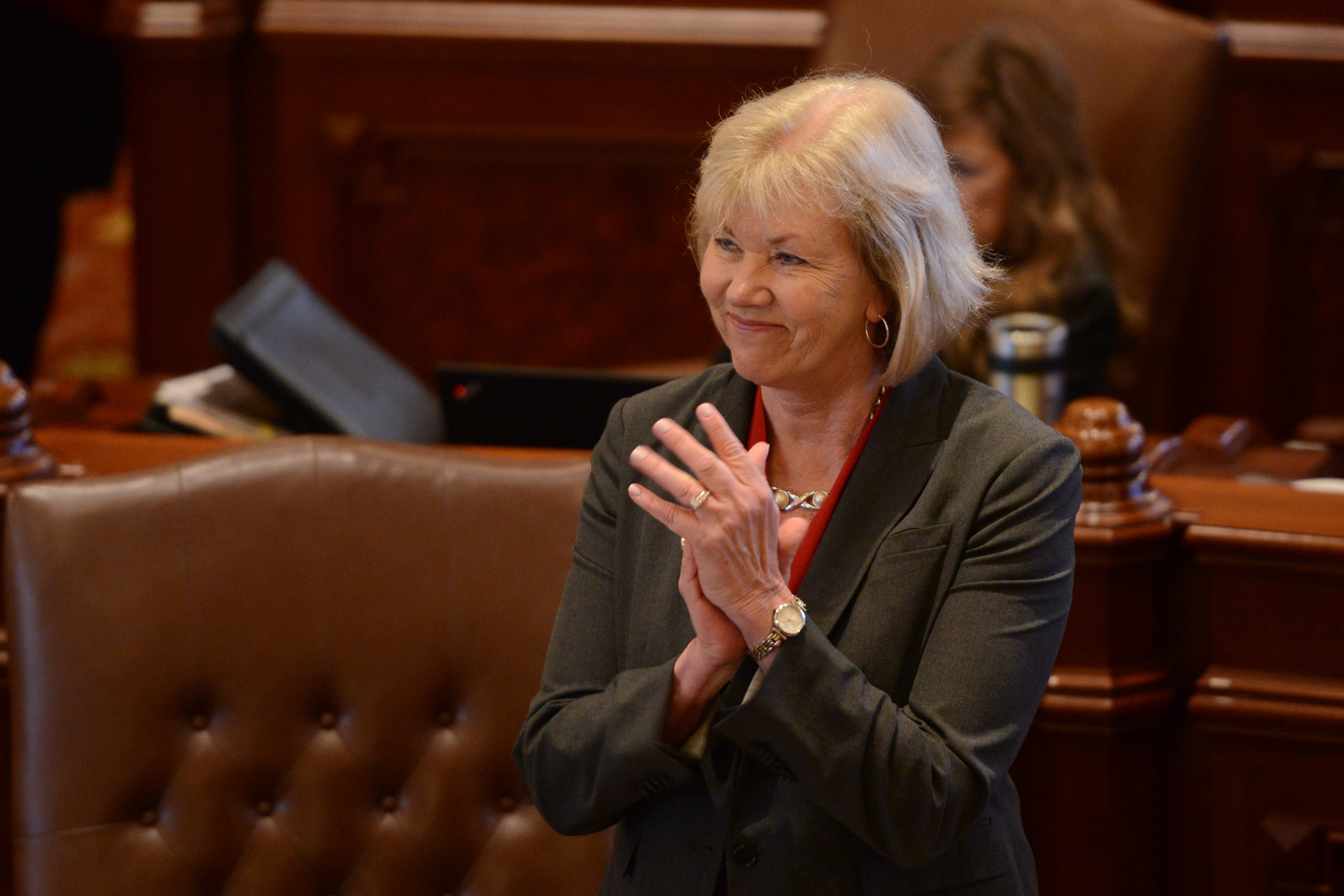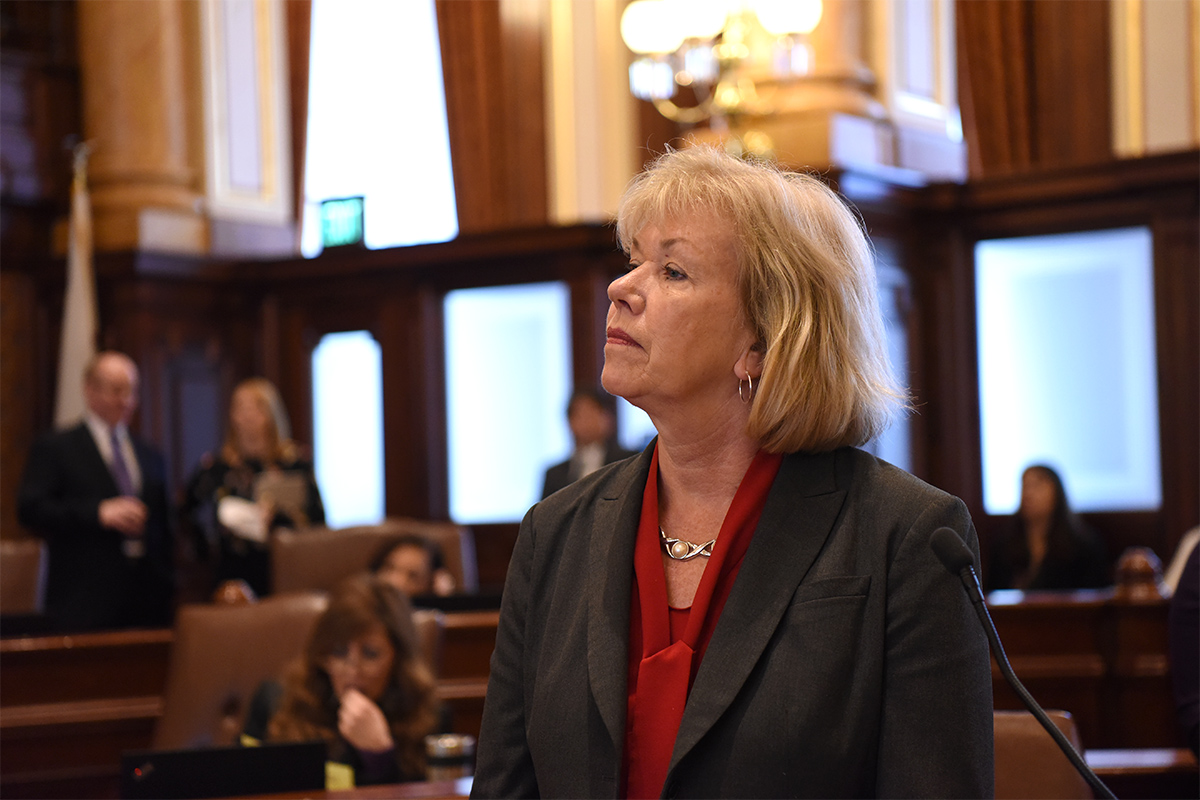Senators Morrison, Johnson congratulate local museums for grant award
- Details
- Category: Latest News
LAKE COUNTY, Ill. —State Senators Julie Morrison and Adriane Johnson are congratulating a number of Lake County-based museums who were awarded part of a $22.8 billion grant to improve facilities and develop new exhibits.

“Museums serve as a place for people to explore, families to bond and children to learn,” said Morrison (D-Lake Forest). “Due to the ongoing public health crisis, many of these outstanding facilities have lost money, despite continuing to share their facilities with the public through new virtual ways.”
Buffalo Grove Park District was one of more than three dozen institutions to receive part of the $22.8 million in funding. The Educational Gardens at The Nature Classroom program through the park district received $246,000.
“Museums and the exhibits and programs they offer help tell a story of our community and state’s history,” said Johnson (D-Buffalo Grove). “The additional funding will allow these institutions to expand, grow and create more opportunities for Lake County residents and all who visit.”
The Illinois Public Museum Capital Grants Program, spearheaded by the Illinois Department of Natural Resources, was open to any museum operated by a local government or located on municipally-owned land.
The Waukegan History Museum Expansion at the Carnegie Center through the Waukegan Park District, located in the district Johnson represents, also received $750,000 in assistance through the grant program.
Additionally, the Chicago Botanic Garden, located in the district Morrison represents, received $750,000 for water main improvements.
For more information on the Museum Capital Grant Program, visit the Illinois Department of Natural Resource’s website.
Morrison congratulates Lake County Children’s Advocacy Center on national re-accreditation
- Details
- Category: Features
DEERFIELD – As a steadfast advocate of helping underserved children, State Senator Julie Morrison (D-Lake Forest) is excited to congratulate the Lake County Children’s Advocacy Center on achieving re-accreditation from the National Children’s Alliance.

The Lake County Children's Advocacy Center is a safe, child-focused environment where a child visits after police or the Department of Children and Family Services believes the child is being abused. The child tells their story to the trained interviewer, who then works with a team to help the child.
“The Lake County Children’s Advocacy Center serves as a guardian angel and an extra set of eyes the most at-risk children in our communities,” Morrison said. “This re-accreditation is a tremendous and well-deserved honor that will allow it to continue to bring great services to our community.”
Receiving accreditation guarantees the advocacy center is providing the most consistent and evidence-based interventions to the children served. Additionally, it shows the advocacy center is at the forefront of best practices to help children who are abused and mistreated.
To become accredited, the Lake County Children’s Advocacy Center had to meet a number of standards including, but not limited to, victim support and advocacy, child focused settings, mental health services, and multi-disciplinary team representation. The Lake County-based group is the second largest performing children’s advocacy center in Illinois and has become a pilot location for other advocacy centers in the state.
“[We acknowledge] the extensive work the center and team has completed to demonstrate through both written documentation and observed practice that the CAC is in compliance with national accreditation standards,” the National Children’s Alliance said in its re-accreditation letter. “The standards and their accompanying criteria ensure that children and families in your community receive effective, efficient, relevant and compassionate services.”
Due to its accreditation, the center received $367,000 to help families across the county. Services include a juvenile advocate, two on-site mental health providers, and additional staff from the state’s attorney’s office. The Department of Children and Family Services is on site to participate in the Forensic Interview process, as well.
Morrison: 19 businesses in 29th District received help, but more should apply
- Details
- Category: Latest News
DEERFIELD –State Senator Julie Morrison (D-Lake Forest) is pleased to learn 19 businesses in the district she represents have received financial assistance from the Business Interruption Grant program to help offset financial losses stemming from the ongoing COVID-19 pandemic, and she is encouraging more to apply.

“Small business owners have been some of the people hardest hit by the financial impacts of the COVID-19 pandemic,” Morrison said. “These funds will help them keep their doors open and their employees paid while keeping the community safe.”
Nearly 20 businesses in the district Morrison represents received a combined $700,000. Each business received between $5,000 and $150,000 to be used to help cover the costs of payroll, rent, utilities and other working capital during the time they have experienced interruptions due to the pandemic.
The Illinois Department of Commerce and Economic Opportunity awarded the grants last week, as part of the second round of BIG Grants. However, applications will remain open until all of the funding is spent.
“Although these grants are extremely helpful, nothing beats support of the local community,” Morrison said. “I encourage people to continue to shop at their local small businesses, especially when shopping for the holidays.”
The BIG program is the largest state-run economic support program formed in response to the financial losses caused by the COVID-19 pandemic. Applications are available on the DCEO’s website.
Morrison urges people to get tested for COVID-19, shop small
- Details
- Category: Latest News
DEERFIELD – As the district State Senator Julie Morrison (D-Lake Forest) represents begins to see increased COVID-19 restrictions, she is urging people to get tested for the virus and support small businesses.

“If we pull together and continue to do simple tasks like wearing a mask and practicing social distancing, we can once again slow the spread,” Morrison said. “We’ve proven in the past that following these rules works, so let’s not stop now.”
The Illinois Department of Public Health announced Wednesday that resurgence restrictions will be put into place at 12:01 a.m. on Saturday, Oct. 31 for Region 9 – which is Lake and McHenry County. Mitigation measures include no indoor service at bars and restaurants, required reservations for each party, and social gatherings limited to 25 people or 25% of overall room capacity.
Morrison also represents portions of Region 10, which began the same restrictions Wednesday.
To help alleviate further spread of the virus, Morrison is encouraging anyone – regardless of symptom or exposure – to take advantage of a number of additional free COVID-19 testing sites coming to the area, including two this weekend. People can get tested Saturday from 8 a.m. until 4 p.m. at Libertyville High School, located at 708 W. Park Ave., or Sunday from 9 a.m. until 5 p.m. at Deerfield High School, located at 1959 Waukegan Rd.
Additionally, she is encouraging people to support small businesses that may be struggling during this time. Supporting local businesses, however, doesn’t just mean going to brick and mortar stores. Residents can support small businesses through online sales, ordering carry out from a locally owned restaurant or buying a gift card for a friend. For every dollar spent at a small business, 67 cents stays in the community.
“Small businesses help us. Now it’s time for us to help them,” Morrison said. “As you start your holiday shopping, I encourage you to consider the many small, local businesses that make our community such a vibrant place to live.”
More Articles …
Page 76 of 134





